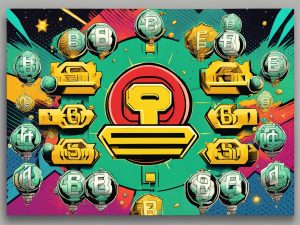The Reality of Decentralization in Cryptocurrency: Insights from Tether’s CEO
Imagine a world where true decentralization exists only in one cryptocurrency – Bitcoin. Paolo Ardoino, the CEO of Tether, made a bold statement about the essence of decentralization in the crypto space. Here are some key takeaways:
Bitcoin: The Ultimate Decentralized Currency
- Bitcoin stands out as the only cryptocurrency governed purely by mathematical algorithms.
- Unlike other cryptocurrencies that undergo frequent protocol changes, Bitcoin remains largely immutable.
- Changes in Bitcoin’s protocol require consensus from the community, ensuring a decentralized governance model.
Bitcoin vs. Ethereum: Contrasting Degrees of Centralization
In comparing Bitcoin with Ethereum, Ardoino highlighted the pivotal differences in their levels of centralization:
- Bitcoin’s protocol undergoes rare changes, primarily limited to additions rather than fundamental alterations.
- Ethereum, on the other hand, witnesses frequent protocol updates orchestrated by a select group of developers.
- The governance structure of Ethereum contrasts with Bitcoin’s decentralized approach, raising questions about the degree of centralization.
Tether’s Relationship with Ethereum
Amidst discussions about centralization, Tether’s role in issuing tokens on Ethereum adds another layer to the conversation:
- Tether, a centralized entity, issues tokens on Ethereum and other blockchains.
- The Ethereum Foundation, overseeing Ethereum’s development, presents a centralized organizational structure.
- In comparison with Bitcoin’s decentralized community-driven model, Tether and Ethereum exhibit centralized attributes.
Exploring the World of Altcoins
Altcoins introduce varying degrees of centralization, highlighting nuances in the crypto ecosystem:
- Some altcoins are issued by centralized entities, resembling the structure seen in Tether.
- Cryptocurrencies like BNB, SOL, XRP, TON, and ADA demonstrate mixed levels of centralization due to company involvement in their management.
- Bitcoin stands out as the epitome of decentralization, with minimal influence from centralized entities over its development.
The Spectrum of Centralization in Cryptocurrency
As you navigate the cryptocurrency landscape, consider the spectrum of centralization:
- From highly centralized entities like Tether to moderately centralized projects like Ethereum, each cryptocurrency offers a unique governance model.
- Bitcoin’s unparalleled decentralization sets it apart as a currency governed by the collective consensus of its community.
- Understanding the varying degrees of centralization can empower you to make informed decisions in the crypto space.
Hot Take: Embracing Decentralization in a Centralized World
As you delve deeper into the world of cryptocurrency, remember that decentralization isn’t just a concept – it’s a reality embodied by Bitcoin. By grasping the intricacies of centralization and decentralization, you can navigate the crypto landscape with confidence and clarity. Embrace the decentralized ethos of Bitcoin and empower yourself to make informed decisions in the ever-evolving world of cryptocurrency.





 By
By
 By
By
 By
By
 By
By
 By
By
 By
By